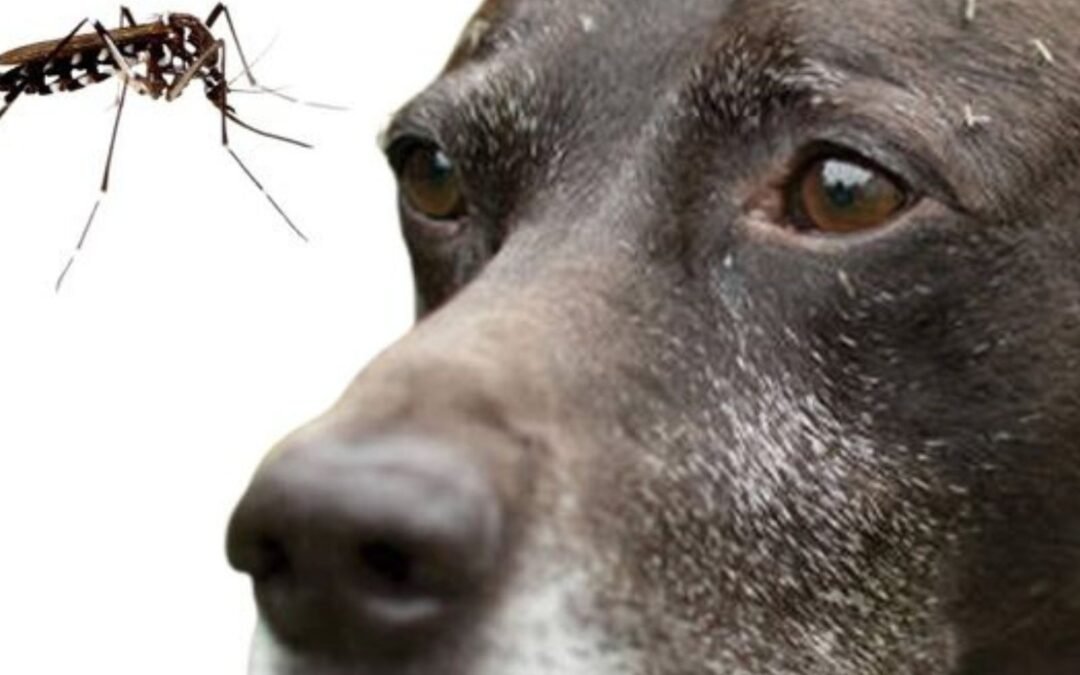Overview
Mosquito bites are more than just a summer annoyance—they can pose significant health concerns for dogs. While most humans react to mosquito bites with temporary itching, our canine companions may experience discomfort, allergic reactions, and even transmission of serious diseases, such as heartworm.
This comprehensive guide explains everything you need to know about mosquito bites on dogs, including common symptoms, associated risks, and effective prevention strategies. Whether you’re a new dog owner or an experienced pet parent, understanding the dangers and protective measures can help safeguard your furry friend year-round.
What Happens When a Dog Gets Bitten by a Mosquito?
When a mosquito bites your dog, it injects saliva into the skin, triggering an immune response that results in itching and irritation. While the bite marks may be tiny, the effects can vary based on several factors, such as your dog’s sensitivity or the potential transmission of pathogens.
Unlike humans, dogs cannot scratch an itch the same way we do, which can lead to prolonged irritation or secondary complications if left untreated. More importantly, mosquito bites can carry life-threatening diseases like heartworm, which warrants close attention and proactive care.
The Dog’s Reaction to a Mosquito Bite

Dogs have a different way of responding to mosquito bites than humans. While we may instinctively scratch or rub the bite site, dogs are less able to address the irritation in the same way. If a dog is particularly sensitive to the mosquito bite, they may lick, chew, or bite at the affected area in an attempt to alleviate the discomfort. This behavior can be problematic for several reasons:
- Prolonged Irritation: Since dogs cannot scratch in the same way that humans can, they may end up licking or chewing on the bite for extended periods. This can lead to prolonged irritation and a greater risk of secondary infections, especially if bacteria from the dog’s mouth is introduced into the bite area.
- Hair Loss and Skin Damage: If the dog continually scratches or bites at the mosquito bite, it can cause hair loss, skin damage, and even open wounds. This can make the area more vulnerable to infection, potentially leading to more serious complications.
- Swelling and Pain: Some dogs may develop localized swelling or experience pain around the bite site, especially if they are allergic to mosquito saliva. In these cases, the discomfort may persist for several hours or even days.
How Does a Mosquito Bite Appear on a Dog?
- Physical Signs: Look for small, red, raised bumps on exposed areas like the nose, ears, or belly.
- Behavioural Changes: Your dog may exhibit discomfort, such as persistent scratching, licking, or chewing at their skin.
- Localized Swelling: Dogs prone to allergic reactions may develop significant swelling around the bite area.
The Risks Associated with Mosquito Bites on Dogs
While the occasional mosquito bite may seem harmless, unaddressed bites can lead to serious health issues. Below are the primary risks to be aware of:
- Transmission of Heartworm Disease
Mosquitoes are the primary carriers of heartworm disease in dogs. When an infected mosquito bites a dog, it transmits heartworm larvae into the bloodstream. Over time, these larvae mature into adult heartworms, which migrate to the heart, lungs, and associated blood vessels, leading to severe health complications.
- Symptoms of Heartworm Infection:
- Persistent cough
- Fatigue and lethargy
- Weight loss
- Difficulty breathing
- Treatment:
Treating heartworm is costly and requires months of medication and strict activity restrictions. Preventive measures, such as monthly heartworm preventative, are far less expensive and more effective.
- Allergic Reactions to Mosquito Saliva
Some dogs develop a hypersensitive reaction to mosquito saliva, exacerbating redness, swelling, and itching.
- Signs of an Allergic Reaction:
- Rapidly growing welts
- Intense scratching or rubbing
- Skin infections from self-inflicted wounds
Severe allergic reactions may even result in anaphylaxis, a life-threatening condition requiring immediate veterinary attention.
- Secondary Skin Infections
Dogs who excessively scratch or chew on a mosquito bite may break the skin, creating an entryway for bacteria. Untreated skin infections can develop into more serious conditions requiring antibiotics.
- Other Disease Risks
While heartworms are the most prominent concern, mosquitoes can transmit other diseases, such as West Nile Virus or Eastern Equine Encephalitis. Though rare, these infections can have severe neurological effects in dogs.
How to Prevent Mosquito Bites on Dogs

Prevention is key when protecting your dog from mosquito bites and the potential complications they bring. Here are some simple yet effective strategies to minimize your dog’s exposure to mosquitoes:
- Use Pet-Safe Mosquito Repellents
Specially formulated mosquito repellents for pets are your first line of defence. Look for products labelled as safe for dogs and avoid using human insect repellents, which may contain toxic ingredients like DEET.
- Administer Heartworm Prevention
Monthly heartworm preventives are essential in areas with mosquitoes. These medications effectively eliminate heartworm larvae before they have a chance to mature.
- Options include chewable tablets, topical treatments, and injections lasting up to six months.
- Always consult your veterinarian to determine the best prevention for your dog’s needs.
- Eliminate Standing Water
Since mosquitoes breed in standing water, reducing their habitat can significantly lower the mosquito population around your home.
- Regularly empty water bowls, bird baths, and plant saucers.
- Fix any drainage issues in your yard to prevent water from pooling.
- Keep Dogs Indoors During Peak Mosquito Hours
Mosquitoes are most active at dawn and dusk. To reduce the likelihood of bites, limit outdoor activities during these times.
- Invest in Protective Gear
Consider mosquito nets or lightweight, protective clothing for dogs spending significant time outdoors. This gear can reduce direct contact with mosquitoes while allowing ventilation.
- Maintain Grooming and Hygiene
Regular grooming helps you spot potential bites early and ensures your dog’s coat isn’t creating an attractive hiding place for insects.
What to Do If Your Dog Gets Bitten by a Mosquito
If mosquitoes have bitten your dog, follow these steps to alleviate irritation and monitor for potential complications:
- Clean the Affected Area
Clean the bite with warm water and mild soap to prevent infection and remove allergens.
- Apply Pet-Safe Anti-Itch Products
Pet-safe hydrocortisone creams or sprays can help reduce itching and inflammation. Avoid over-the-counter products designed for humans, as they may contain ingredients harmful to dogs.
- Prevent Over-Scratching
If your dog persists in scratching or chewing the bite, consider using an Elizabethan collar (e-collar) to protect the skin and promote healing.
- Monitor for Infection
Monitor the bite for signs of infection, such as worsening redness, pus, or increased swelling. If symptoms worsen, consult your veterinarian immediately.
- Watch for Heartworm Symptoms
If heartworm preventives were not administered consistently, look for signs of heartworm disease, such as persistent coughing or lethargy. Early diagnosis leads to better treatment outcomes.
Final Thoughts—Protecting Your Dog From Mosquito Bites
Mosquito bites on dogs are more than just a nuisance—they’re a potentially serious health risk. By staying vigilant, using preventive measures, and providing immediate care when needed, you can significantly reduce the dangers mosquitoes pose to your furry friend.
Don’t wait to safeguard your beloved pet. Speak with your veterinarian today to ensure your dog is protected with heartworm preventive treatments and pet-safe repellent solutions. A little preparation goes a long way in keeping your dog happy and healthy.

